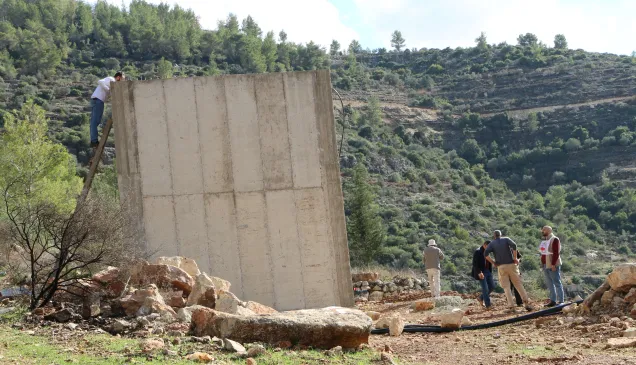Gaza: "I refuse to be displaced again"
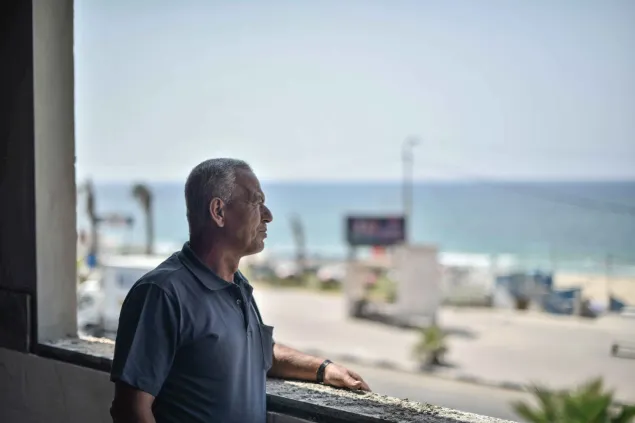
Abdel Fattah Shamallakh, 58, is retired. “I worked as a fisherman for 35 years when fishing was a profitable job. I was able to provide for my five sons, four daughters, as well as their children. I managed to build a three-floor house to live together with my sons and their families. I don’t work anymore. I gave up on fishing. It has become a risky business and the sea is not as generous as before,” he says.
“In May 2021, my house was destroyed. We all moved to a rental apartment. Humanitarian organisations, like the ICRC, helped us with basic household items. It’s one of the hardest things to depend on aid after so many years of being financially comfortable. It feels like your dignity is compromised,” he adds.
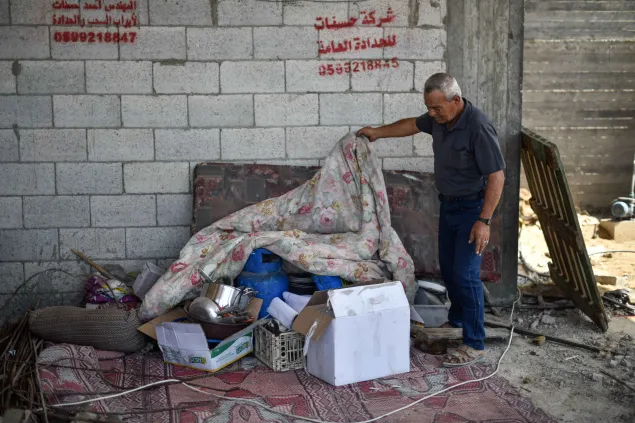
Abdel Fattah Shamallakh checking his personal belongings in his destroyed house, which is still under reconstruction.
“I received a grant to rebuild my destroyed house. During the August 2022 escalation of hostilities, the temporary rental apartment was partially destroyed. It was harder this time to keep the family together. We got separated and were hosted by relatives in different locations,” he says.
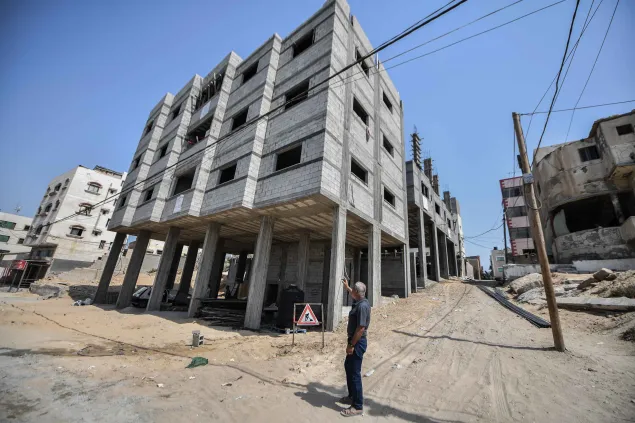
Abdel Fattah Shamallakh pointing at his house, which was destroyed in the May 2021 escalation and is still under reconstruction.
“The ICRC helped me with essential household items for the second time, in addition to cash assistance, which made a difference and helped me to quickly cope with the situation,” he says.
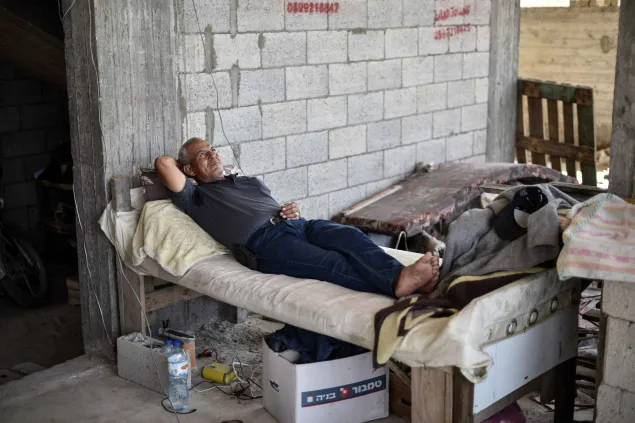
Abdel Fattah Shamallakh refuses to be displaced again. He will stay in his destroyed house until it’s ready to accommodate the entire family.
“I don’t think the future will bring us good news as long as the conflict remains. Our lives can change for the better only when the conflict ends. We’re exhausted and we need a solution to spare families the woes of war,” he says.


